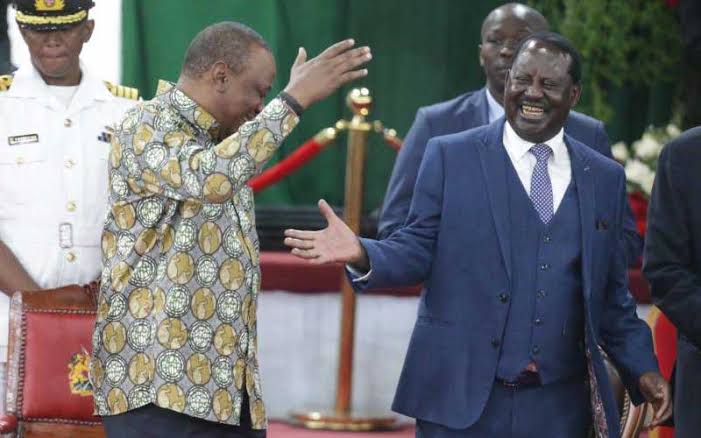NAIROBI, Kenya, Mar 10- Other than the fact that in 2013, general elections were held on this date, March 4 should have passed as an ordinary day in Kenya. But it didn’t.
This year, it was the day on which about seven minor elections were happening in different spots in the country.
Five wards and two constituencies electing representatives to the county assemblies and National Assembly, respectively, in a country with 1,450 wards and 290 constituencies should not, ordinarily, be such big national news. Most Kenyans actually went about their lives like nothing was happening.
But then drama began.
A former Cabinet Secretary was shown on national television beating an officer of the Independent Electoral and Boundaries Commission (IBEC), a senator was shown wailing over some Sh2 million that had been stolen from him and bank notes seen flying around- one wonders what a senator was doing with that kind of money in hard cash at a polling station- and a county woman representative was heard hurling invectives at some fellow leaders inside a voting hall.
Elsewhere, some Members of Parliament and Senators were spotted brandishing guns and kicking teargas canisters as they pushed and shoved suspected opponents in a remote ward far removed from their home constituencies and counties, not to mention Nairobi where their offices are domiciled.
In a nutshell, the violence that was witnessed on that day was too much for a by-election.
Actually, it is not even acceptable for a general election. The fact that such ordinarily low interest political contest can degenerate to such magnitude of tension and life threatening sprouts of hostility is not only unfortunate but also a clear sign of a society on self-destructive mission.
But it wakes the country up to the reality that we are treading on very dangerous grounds.
Just a day after the chaotic ‘small’ elections and two days to the third anniversary of the symbolic handshake between President Uhuru Kenyatta and de facto Opposition chief Raila Odinga, cracks started showing in the pact that was ostensibly entered to avoid “violence after every electoral cycle”.
Senate Minority Leader James Orengo, a close ally and legal advisor of Mr. Odinga told the country that some people, he did not name but who he said are domiciled at the President’s office in Harambee House, were working to sabotage the handshake and frustrate the Building Bridges Initiative (BBI).
The BBI, a product of the handshake, has been touted as the roadmap to everlasting peace and tranquility in the country. It is currently set for debate at both the National Assembly and the Senate having been officially endorsed by 43 of the 47 county assemblies across the Nation.
The law requires such an amendment to the Constitution as the BBI to only get endorsement from a simple majority of county assemblies, which is 24.
If the vote at the county assemblies is anything to go by, the Bill will get overwhelming popular endorsement at the referendum, which is the next stage after Parliament, and will become law.
In his complaint, however, Senator Orengo also complained that the Harambee House team were working on a Uhuru succession plan that aimed to bypass Mr. Odinga and warned that this was contrary to the agreement of the handshake and ODM, the party Raila leads, will not take it lying down.
There was talk from the same ODM side that its supporters were ready to go to the streets if the President’s men continued on the trajectory of propping someone else to succeed Uhuru in 2022.
The sentiments of the Siaya senator, which were shortly after repeated by National Assembly Minority Leader Junet Mohammed, raise many issues that seem to have been well managed by the deceptive veil of the handshake and its BBI baby. But two are particularly disturbing.
Mr Odinga has consistently sought to explain to Kenyans that the handshake and the BBI have nothing to do with the 2022 general elections and the Uhuru Kenyatta presidential succession.
Orengo and Junet don’t seem to think so and, considering the positions these two holds in the ODM leadership, it is now clear that has been a lie repeated for far too long. The handshake was more about 2022 than anything else.
The second, and probably the most unsettling issue, is whether the handshake and BBI really brought peace and unity in the country and if at all it has the capacity to.
There are so many indications that the twin approach that are seen as hope of a nation has fallen short on deliverables.
Yes, the country was divided in 2017. But it is obviously more divided now with the followers of Deputy President William Ruto, for instance, feeling left out by the handshake. And they are not few, if those cheering the ‘hustler nation’ are anything to by.
Yes, there has been some semblance of peace and tranquility since March 9 2018 deal. But it seems it was just a temporary lull before the storm if last week’s by election and ODM leaders’ current bickering mean anything.
With the foregoing, we must look beyond the handshake and the BBI to find lasting peace and unity in the country. Otherwise we have a real bad time ahead.
Want to send us a story? Contact Shahidi News Tel: +254115512797 (Mobile & WhatsApp)


